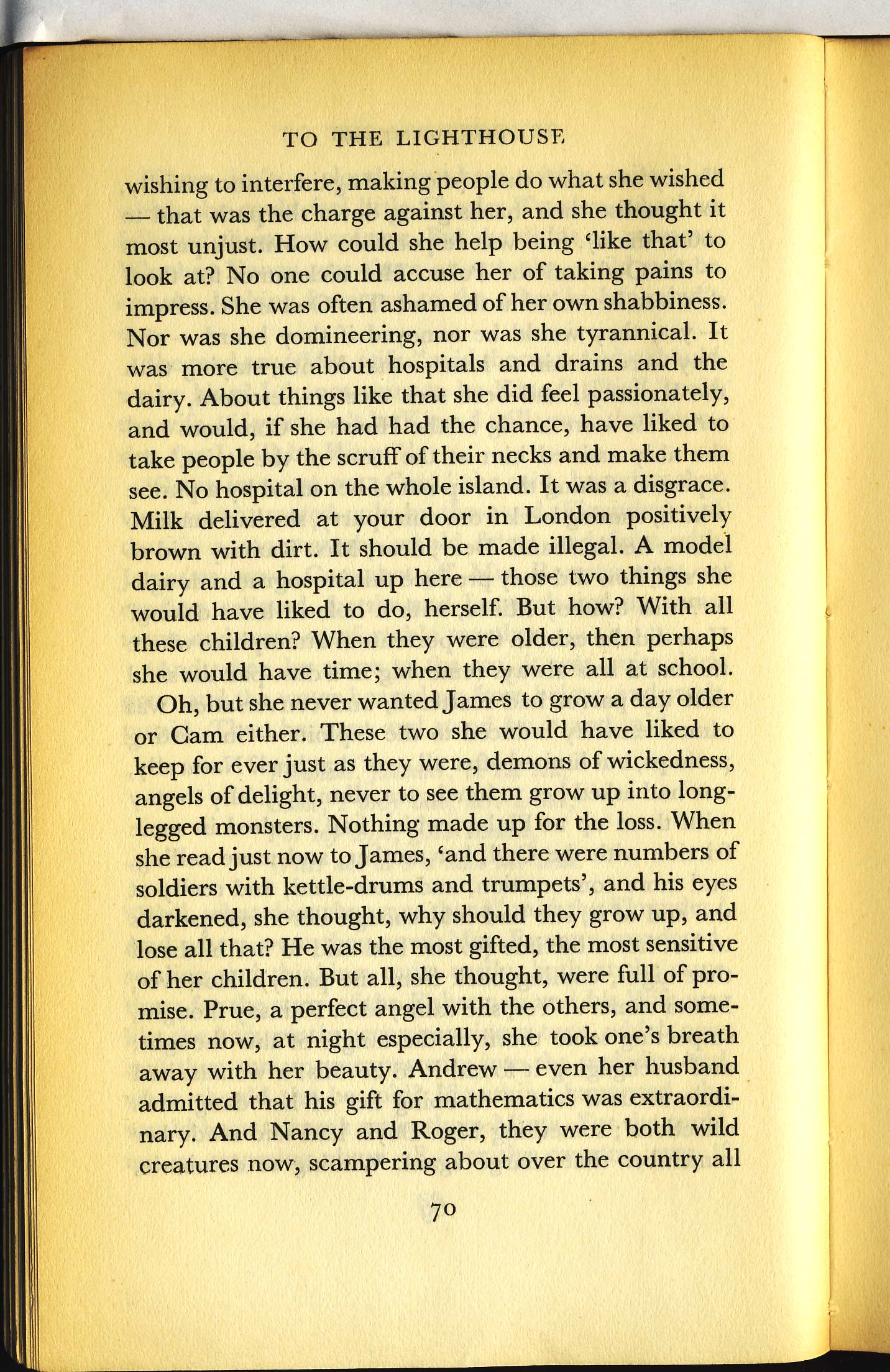
TO THE LIGHTHOUSEwishing to interfere, making people do what she wishedŌĆö that was the charge against her, and she thought itmost unjust. How could she help being ŌĆślike thatŌĆÖ tolook at? No one could accuse her of taking pains toimpress. She was often ashamed of her own shabbiness.Nor was she domineering, nor was she tyrannical. Itwas more true about hospitals and drains and thedairy. About things like that she did feel passionately,and would, if she had had the chance, have liked totake people by the scruff of their necks and make themsee. No hospital on the whole island. It was a disgrace.Milk delivered at your door in London positivelybrown with dirt. It should be made illegal. A modeldairy and a hospital up here ŌĆö those two things shewould have liked to do, herself. But how? With allthese children? When they were older, then perhapsshe would have time; when they were all at school.Oh, but she never wanted James to grow a day olderor Cam either. These two she would have liked tokeep for ever just as they were, demons of wickedness,angels of delight, never to see them grow up into long-legged monsters. Nothing made up for the loss. Whenshe read just now to James, ŌĆśand there were numbers ofsoldiers with kettle-drums and trumpetsŌĆÖ, and his eyesdarkened, she thought, why should they grow up, andlose all that? He was the most gifted, the most sensitiveof her children. But all, she thought, were full of pro-mise. Prue, a perfect angel with the others, and some-times now, at night especially, she took oneŌĆÖs breathaway with her beauty. Andrew ŌĆö even her husbandadmitted that his gift for mathematics was extraordi-nary. And Nancy and Roger, they were both wildcreatures now, scampering about over the country all70









